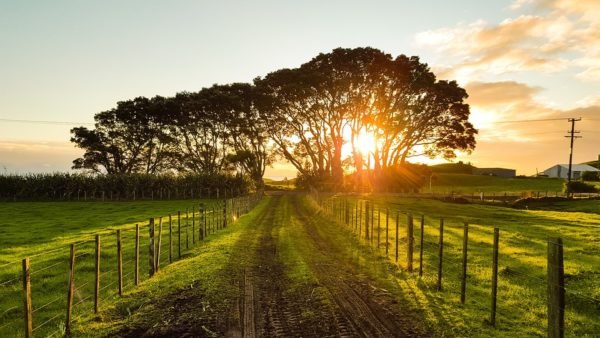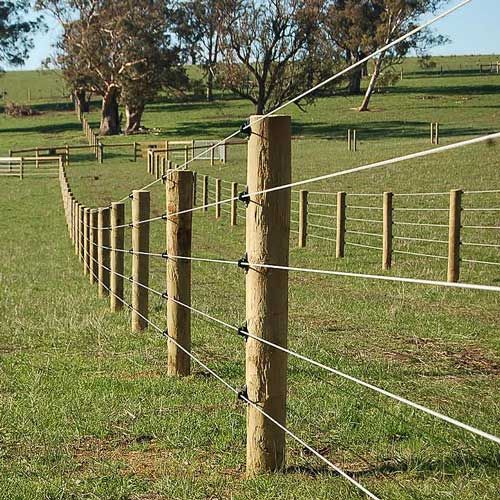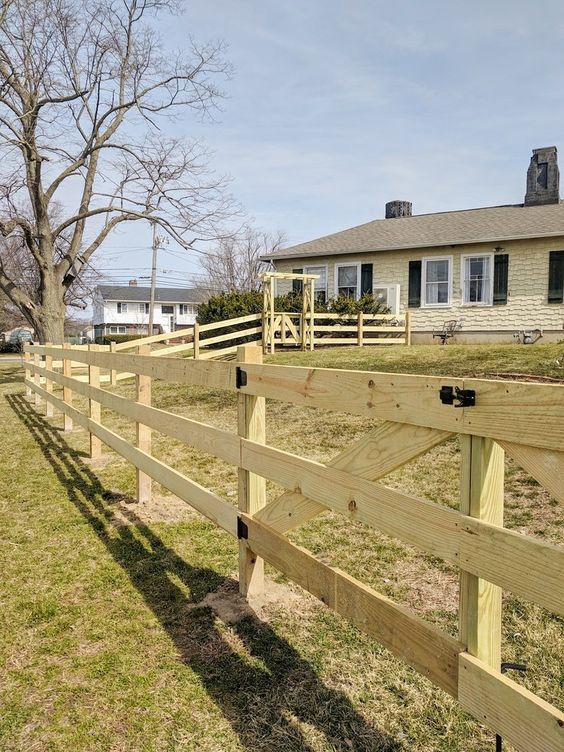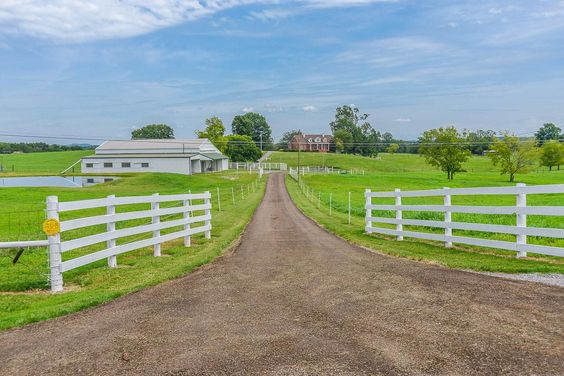
How to Maintain Wood and Wire Farm Fencing

Whether you are using fences, like the ones from the steel fencing solutions, simply to mark the boundaries of your land, or whether they have a significant role such as penning livestock, fences are always an important (and expensive) consideration. With this in mind, once you have installed fencing, you need to make sure it lasts as long as possible, through regular, appropriate maintenance and this is true for all wood and wire fences. Here are some of the things you need to think about when you are aiming to properly maintain and care for the wood and wire of your farm fencing.
Choose High-Quality Fences

It goes without saying that the first thing you need to ensure when initially considering a fence purchase is to make sure you get the highest quality fencing you can with the budget you have available. Beware of false economy and always remember, a good fence can outlive a bad one by decades, as well as requiring much less maintenance. Consider opting for a reliable service like Fence Companies Decatur AL to ensure you get the quality and longevity you’re looking for in your fence investment.
In a farm situation, more often than not a large volume of fencing is required. So, it makes sense to secure a high-quality farm fencing that is going to be able to last for years with minimum maintenance. Fence longevity can also be influenced by selecting the right fencing for the right application as, for example, keeping horses in a field requires a very different type of fencing from that designed to keep rabbits out. If you are not sure which is the right fencing for any particular application, it’s always worth speaking to an expert in fencing such as you will find at major suppliers such as McVeighParker.
For those considering automatic gates as part of their fencing setup, troubleshooting tips can be found at Viking Fence.
Apply the Right Treatments

When you install a fence with fence footings, also ensure you understand what, if any, treatments have been applied to the supplied wood or metal. For example, have the wooden fencing stakes been pressure treated or creosote applied? Or has the metal wire stock fencing been suitably galvanised?
If you are inheriting existing fencing or are unsure what treatments might have been applied, you might need to apply, at least to wood, additional protective treatments. It’s always worth checking before major problems develop. Issues are most likely to take the form of some sort of aging or breakage, and if this relates to wood it is vital that you take steps to protect the fence’s integrity. There might also be specific challenges for certain types of environment, for example, you might want to apply a treatment that will stop infections like woodworm.
Another step you could take is to paint the wood. If the fence is going to be used for livestock, this might not always be the best idea, but if it is used to mark a boundary or for some other purpose then painting fencing with a suitable formula will provide fencing with some much-needed protection. It can also help to improve the aesthetics of the wood fence installation overall.
Regularly Inspect the Fence
On farms, you also need to make sure that you are committing to regularly checking all fences for any sort of damage – particularly if the fence is going to be used to hold back livestock. As, in a livestock pen, it is much more likely that the fencing will be challenged with direct contact from animals (unless of course you have invested in electric fencing). In this case you ideally want to be checking every day for damage. This can take the form of simply walking around the pen each day, but it is well worth doing as fully broken fences are trickier to repair, are more likely to bring down more fencing and also might mean the possibility of livestock escaping.
When a period of bad weather is being experienced is also a good time to make additional checks on fencing. After all, a severe storm can cause damage to a fence that livestock can then make worse. What you might think is a break that will hold could often be the perfect opportunity for your livestock to escape. This is obviously a scenario that should be avoided. With vigilant inspections and a quick turnaround in repairs, you should be able to keep your farm fences properly secured.
Wash Your Fences Properly

Many fences will not require a regular wash, but it can be wise to give them a clean down at least once a year. It is vitally important that you learn how to clean them correctly, so you do not damage them accidentally. Wire portions of your fence will just need a rinse down with a hose most of the time. If there is a bit that appears to be particularly stubborn, a soft brush should be able to take care of it. Cleaning wool and other debris off your fences will also help to protect them while also maintaining their appearances.
With wood, you can wash it down with a special wood cleaning solution or with water. Make sure that you leave the fence to dry out fully before applying further treatments if these are also required.
Don’t Overload Your Fences
Whether they are made from wood or wire, you need to make sure that you are not overloading fences with additional parts. If you wish to hang something from any fence, be it a feeding station for your livestock, a hanging basket, or even a sign, you need to ensure that there is the right foundation in place to be able to support it.
If you hang too much weight on a fence that can’t support it, it can buckle and warp. This could even lead to the collapse of the fence. Should you wish to add something to a fence that was not specifically built for it, you should think about improving the foundations first.
Fences are incredibly important, and you need to make sure that they are always going to be well-maintained. It can end up being very costly if you do not address even something as simple as a wobbly post or a loose board. It’s not the most glamorous of tasks but it’s always worth making sure you stay on top of your fencing maintenance.











































